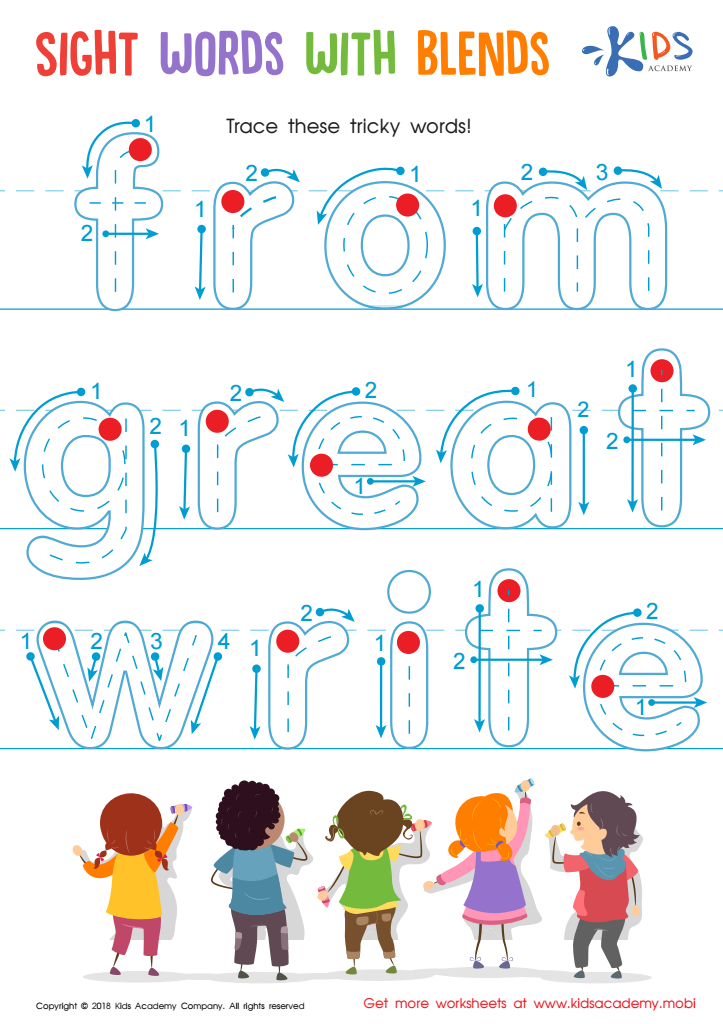Phonics recognition Normal Writing Worksheets for Ages 6-9
3 filtered results
-
From - To
Unlock your child's reading potential with our Phonics Recognition Normal Writing Worksheets for Ages 6-9. These expertly crafted worksheets provide the foundational skills necessary for decoding words, enhancing fluency, and fostering a love for reading. Each exercise focuses on letter sounds, blends, and phonemic patterns, ensuring an engaging, interactive, and effective learning experience. Tailored for young learners, our printable resources support both classroom and home use, promoting consistent practice and progress. Watch as your child's confidence and reading abilities soar with Kid’s Academy’s trusted phonics worksheets, meticulously designed to make learning fun and impactful.


Sight Words with Blends Worksheet


Phonics and Word Recognition: Assessment 1 Worksheet


Phonics and Word Recognition: Assessment 2 Worksheet
Phonics recognition is a fundamental building block for early reading skills, critical for children between the ages of 6-9. At this developmental stage, children transition from learning to read to reading to learn. Phonics teaches the relationships between letters and sounds, enabling children to decode new words and understand their meanings. This skill is essential for developing fluent readers who can tackle more complex texts.
When parents and teachers emphasize phonics, they provide children with the tools needed for academic success. Improved phonics recognition leads to better reading comprehension, vocabulary growth, and overall language proficiency. Struggling with these foundational skills can cause frustration and a dislike for reading, impacting a child’s self-esteem and academic performance.
Moreover, strong reading skills are linked to better performance in other subjects, such as math and science, because they improve a child's ability to understand and follow instructions. Phonics-based education also supports writing skills. As children learn to recognize letters and sounds, they become more competent in spelling and sentence construction, enhancing their ability to communicate effectively.
In summary, prioritizing phonics recognition for ages 6-9 sets the stage for lifelong learning and success, making it an integral aspect of early childhood education for both parents and teachers to support.
 Assign to My Students
Assign to My Students
















